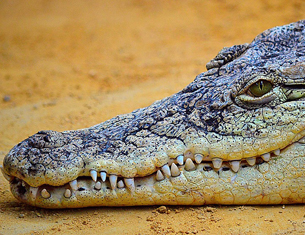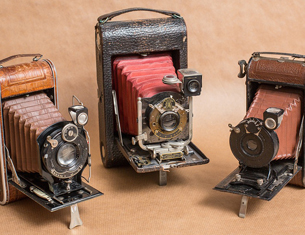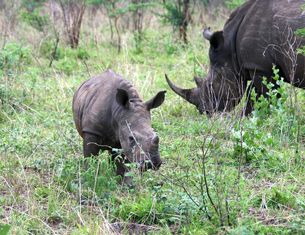Fly to Limpopo
Limpopo often gets overlooked in favour of the more popular tourism regions. It offers some spectacular places, with fewer visitors to crowd them. It’s the gateway to the northern parts of the Kruger National Park and also has the malaria-free Waterberg game reserves.
This end of the Kruger National Park is the Pafuri region, a beautiful wilderness of ancient forests, excellent bird watching and traces of early humankind. One of the highlights, the world’s oldest baobab tree, the Sunland Baobab is more than 6 000 years old. Fever trees and giant baobabs line the banks of the Limpopo and Luvuvhu rivers, as they have for centuries. Pafuri Wilderness Camp is a private lodge in the ancestral lands of the Makuleke people. The game rangers here will show you Stone Age axes and unexcavated dinosaur fossils.
The Mapungubwe National Park is a World Heritage Site that rich with archaeological treasures. This area was inhabited by an Iron Age community from 900AD and become prosperous between 1200-1270AD through trade with Egypt, India and China. Archaeologists have excavated a golden rhino and other evidence of a wealthy African kingdom, which is now on display in an interpretation centre. A mini-Ice Age is believed to have led to the kingdom’s downfall.
Imagens
The Waterberg is a lovely part of Limpopo, with great weather all through the year. The Waterberg Meander is a network of private lodges, nature reserves, cultural villages, craft projects and social upliftment projects. The people involved include Pedi potters, female beaders and embroiderers at Kamotsogo Craft Art in the little town of Vaalwater. Look out for the ancient rock art, too. Lehlabile Cultural Tours is run by four women who have opened their Pedi homes to tourists and conduct tours to show off their food, crafts, song, dance and oral history.
Bela-Bela is a charming historic town in the foothills of the Waterberg, with a fun waterpark and hot springs that rise to the surface at 53°C. The springs were first used for healing purposes by the Tswana people hundreds of years ago. You can also visit Thaba Kwena Crocodile Farm, one of the largest commercial croc farms in the country.









